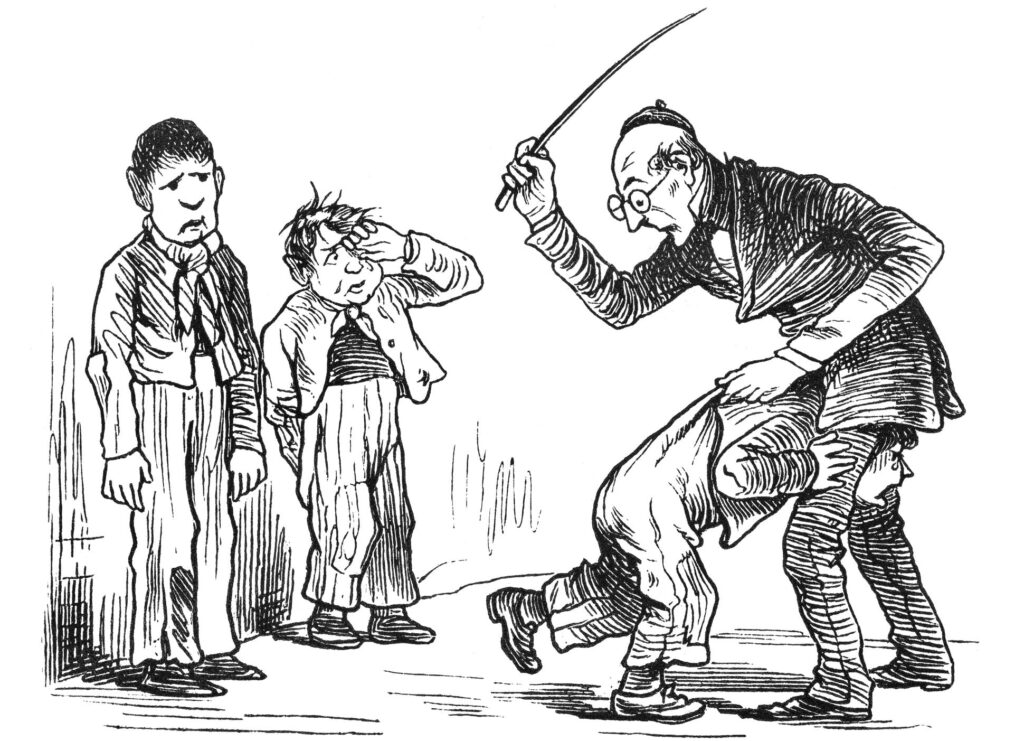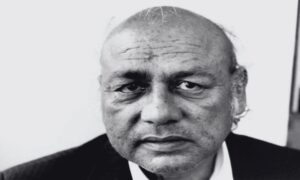Saba Chaudhary
Child abuse and corporal punishment is very serious issue that needs to be addressed. Recently, on the plea of celebrity activist Shehzad Roy, the Islamabad High Court banned corporal punishment in schools, but this ruthless practice sadly still exists in some institutions. And it is rampant in small towns and underprivileged areas. Children in rural areas of Pakistan are already victims of everyday punishment by being denied their basic right and quality education. The education system in Pakistan needs an overhaul as it has become only a money-making machine that even if you don’t pay them fee timely they punish you. Instead of nurturing brilliant minds, children are desensitized to this kind of abuse and this culture of normalizing toxic practices keeps haunting coming generations.
In a 1989 documentary titled ‘Homework’ schoolchildren were asked, ‘What do you like the most homework or cartoons?’ Surprisingly, the children replied ‘homework.’ It appeared obvious that the children lied because they were being recorded. The fear of being punished was so deeply embedded in their minds at so young an age that they chose to lie en masse.
The children were then asked to define punishment and encouragement.
Sadly, while they were quick to answer that punishment meant being beaten, there was hardly any concrete idea about what encouragement looked like.
This made one thing plain; the children were too little to verbally criticize the burden of homework and punishment in school but their emotional responses reflect the flaws in education systems worldwide.
I am overwhelmed at seeing so many people come forth and speak up against harassment, bullying and corporal punishment but it saddens me that it took so many years for them to finally speak up. The pain and trauma they went through is unimaginable yet more worrying is that in our forgotten rural areas, corporal punishment continues unabated.
According to UN, child laws are human laws and strict actions should be taken against the people who violate this law. Pakistan was the first country to ratify the United Nations convention on the rights of the child (UNCRC). Its Article 19 enunciates that a child must be protected from all kinds of physical and mental torture.
But nothing has changed. Parents and teachers still practice this inhuman and colonial law to discipline their children. A number of discussions have been tabled in the past but it doesn’t criminalize the law until and unless we take strict actions. A complete ban on violence against children at home, schools and all institutions should be made.
Studies have shown that children subjected to physical punishment have serious mental health problems. Thousands studies have been contacted on long term impacts of corporal punishment.
According to researchers physical punishments can lead to aggression and long term mental health problems later in life.
We need systematic and structure changes for the betterment of our future generations. There are no harassment policies or committees in rural areas school, let alone other laws. Children have no awareness to whom to hold accountable if someone violates their human rights. And parents are not aware of their children’s mental health. Teachers are not fully trained and many of them are complicit of harbouring the culture of corporal punishment.
We have seen MeToo and TimesUp movements and people speaking up on internet but the questions remain the same. Will such movements bring changes in rural areas too? Or we need a new movement in small towns?
The Students’ Herald News Desk focuses on reporting the latest news regarding student politics and campus updates to you.
The News Desk can be reached at admin@thestudentsherald.com




